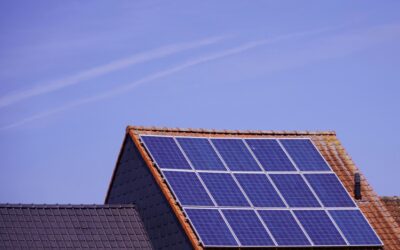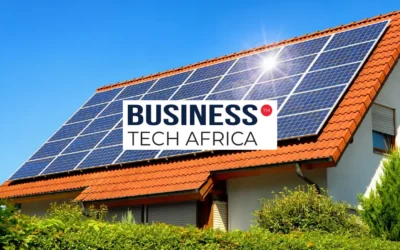“How does solar work?” – quite rightly, a question that our team of consultants at Versofy SOLAR get asked all the time. Understanding a force of nature and how a complicated solar inverter works is rocket-science-level stuff. But the good news is that it is for us to understand and deploy, and for you, as the solar customer, to enjoy, as a result. We make sure your residential solar systems comply with all relevant utility standards, plus we ensure that a Certificate of Compliance (COC) is issued for any work completed, so that you can sit back without worrying about all the technicalities.
Simplifying the Complex
How does solar work? is an important question to ask in our current situation. Not out of curiosity, but because of its increasing reliance for homes and businesses across South Africa. Knowledge is power and we all need to make informed decisions when the state of our grid affects us the way that it continues to do so. It’s not a hype, it’s a trend and a train for a very good reason.
To provide a basic insight, as well as an understanding of the generational process of a solar system – here’s an educational blog on how it all works and comes together. We hope it fascinates you as much as it does to us.
How Does Solar Work? – Panels
Solar panels, also known as photovoltaic (PV) panels, convert sunlight into electricity through a process called the photovoltaic effect. The panels are made up of multiple small units called solar cells. These are typically made from silicon or other semiconducting materials.
When sunlight hits a solar cell, it excites the electrons in the material and causes them to move, creating a flow of electricity. This flow of electrons can be captured and harnessed for various applications.
The solar cells are arranged in a panel, which is typically mounted on a roof or other sunny location. The panels are then connected to an inverter, which converts the direct current (DC) electricity produced by the cells into alternating current (AC) electricity that can be used to power homes, businesses, and other electrical devices.
What Are Hybrid Solar Inverters
Hybrid solar inverters, also known as multi-mode inverters, are electronic devices that can manage multiple sources of energy to provide electricity to your home or business. They are primarily used in solar energy systems to convert the direct current (DC) electricity produced by solar panels into alternating current (AC) electricity that can be used to power household appliances and other electrical loads.
We partner with Sunsynk, whose hybrid solar inverters work in two different modes: on-grid mode and off-grid mode.
In on-grid mode:
- the inverter is connected to the utility grid, and any excess solar energy generated by the solar panels is fed back into the grid, which can result in energy credits or payments from the utility company.
- The inverter draws power from the grid (in our case, from Eskom) when solar production is low or when electricity demand is high.
In off-grid mode:
- the inverter is not connected to the utility grid, and it uses batteries to store excess solar energy generated during the day for use at night, or during times when solar production is low.
- The inverter also manages the power consumption of the connected appliances to prevent overloading the batteries.
Sunsynk hybrid solar inverters use advanced control algorithms and sensing technology to switch seamlessly between on-grid and off-grid modes, and to manage the flow of electricity between the solar panels, the batteries, and the grid. They also provide remote monitoring and data logging capabilities, which allow users to track their energy consumption and production in real-time.
Overall, hybrid solar inverters are an essential component of solar energy systems, as they enable the efficient use of renewable energy and provide reliable backup power in the event of grid outages which happen far too often for anyone’s liking right now.
How Does Solar Work? – Step 2. Batteries
Solar batteries typically use lithium-ion technology, which is commonly used in consumer electronics such as; smartphones and laptops. It is the essential storage point we answer, when people ask, how does solar work?.
When sunlight hits the solar panels, it generates DC electricity which is sent to the battery. The battery then stores the electricity until it is needed, such as when the sun is not shining or when electricity demand is high.
When the stored electricity is needed, the battery’s inverter converts the DC electricity into alternating current (AC) electricity, which is the type of electricity that is used in homes and businesses. This AC electricity can then be used to power appliances, lights, and other electrical devices.
Overall, solar batteries provide a way to store the energy generated by solar panels, making it available for use when it is needed, regardless of whether the sun is shining or not. This can help reduce reliance on traditional fossil fuel-powered electricity and increase the use of renewable energy sources.
Solar Works for You. And for the Environment too!
Beyond the dilemma of loadshedding in South Africa lies the green issue as well. Solar is a source of renewable energy that can provide electricity without producing greenhouse gasses or other harmful pollutants. It is used to supplement or replace traditional power sources, and can be especially useful in remote locations where traditional power infrastructure may not be available.
There you have it. A three-pronged hardware solution to answer the question of, how does solar work? That’s how solar works. More importantly, read below to explore how it can work in your home.
All-in-One Solar Subscriptions
Understanding a force of nature is one thing, but applying that knowledge with residential solar solutions is something that is perceived to be uber-expensive.
Not with Versofy SOLAR, where rent-to-own solar our standard subscription, provides green energy to accommodate any residential setup and unlocks significant savings in the long run:
- R3499pm (Versofy GROW) – 5kW Hybrid Inverter
- R4799pm (Versofy CHARGE) – 8kW Hybrid Inverter
- R5699pm (Versofy PLUS) – 12kW Hybrid Inverter.
With the recently introduced Solar as a Service (SaaS) product, more customers can also make the initial switch to solar by renting solar setups exclusively through Versofy:
- R1999pm (Versofy GROW) – 5kW Hybrid Inverter
- R2999pm (Versofy CHARGE) – 8kW Hybrid Inverter
- R3599pm (Versofy PLUS) – 12 kW Hybrid Inverter.
Click here to view the growing range of solar pricing and payment options which offer all South Africans the opportunity to join the energy revolution, on their own terms.



